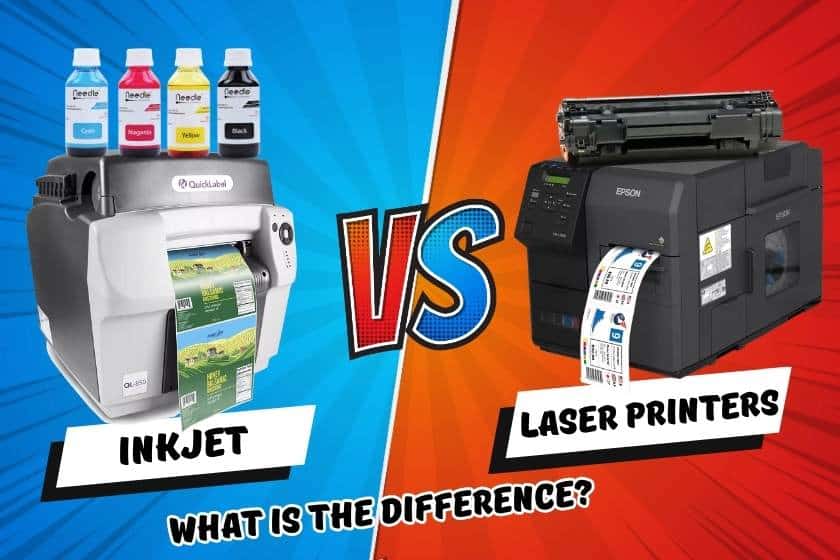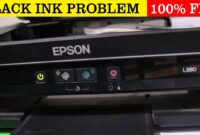Choosing a printer can feel like navigating a maze. You may have encountered terms like inkjet and laser, and while they sound impressive, they can leave you scratching your head. Don’t worry—you’re not alone. One of the most common questions when shopping for a printer is: “Inkjet vs Laser—which one’s right for me?”
In this article, we’ll break down these two popular printing technologies in a way that’s simple and easy to understand. Whether you’re printing stunning photos, important business documents, or everyday homework assignments, we’ll help you determine the best fit for your needs. Plus, we’ll explore how Epson’s cutting-edge technology ensures you’ll never make the wrong choice.
Let’s dive in!
The Basics: What Are Inkjet and Laser Printers?
Before diving into the details, let’s start with the fundamental question: what exactly are inkjet and laser printers, and how do they work?
Inkjet Printers

Inkjet printers are known for their artistry. They create images and text by spraying tiny droplets of liquid ink onto paper. Think of it as painting—except with incredible precision. This technology excels at reproducing vibrant colors and intricate details, making it perfect for printing photos, art projects, or presentation materials.
For example, if you’re someone who enjoys scrapbooking or capturing family moments, an inkjet printer will give you the vivid colors and high resolution you need to make every image pop.
Laser Printers

Laser printers work differently. Instead of liquid ink, they use toner—a fine powder that’s fused to the paper using heat. A laser beam acts as the guide, carving the design onto the paper with remarkable sharpness and speed.
This makes laser printers ideal for printing text-heavy documents like reports, forms, and invoices. If you run a small business or spend more time printing spreadsheets than Instagram-worthy snapshots, a laser printer might be your best choice.
To summarize: inkjet printers are like expert painters, while laser printers are skilled architects, known for their accuracy and efficiency.
Comparing Epson Inkjet vs Laser Printers
Now that you know the basics, let’s compare Inkjet vs Laser printers side by side. Understanding their differences can help you make a confident, informed choice.
Cost Differences
One of the first things you’ll notice when shopping for printers is the price. Inkjet printers tend to have a lower upfront cost, making them great for budget-conscious buyers. However, their ink cartridges need replacement more frequently, which can increase costs over time—especially for heavy users.
Laser printers, on the other hand, typically have a higher initial cost. But here’s the tradeoff: toner lasts much longer than ink, so you may actually save money in the long run.
As an example, imagine you’re printing hundreds of pages a month for your business. A laser printer’s efficiency will save you both money—and frustration—with fewer trips to buy toner.
Print Quality
Print quality is another key consideration. Inkjet printers excel in areas where color and detail matter. If you’re printing photographs, graphics, or creative designs, they deliver rich, dynamic results that truly stand out.
Laser printers, while capable of printing in color, are better suited for crisp, clean text. Their sharp lines and professional look make them the go-to choice for office documents. If you mostly print plain text or black-and-white drafts, you’ll appreciate the polished finish of a laser printer.
Think about it this way: inkjet is a painter; laser is an author. Each shines within its specialized area.
Speed and Efficiency
Need fast results? Laser printers are the clear winner here. Their speed and energy efficiency make them perfect for high-volume tasks. For instance, a laser printer can easily handle hundreds of pages at top speed without sacrificing quality.
Inkjet printers, while slower, offer versatility. They’re ideal for casual home use, where you might print a few pages a week or occasionally produce high-quality images.
Maintenance and Durability
When it comes to maintenance, both types of printers require attention. Inkjet printers rely on liquid ink cartridges that can dry out if left unused for long periods. If you print only occasionally, this could cause minor frustrations.
Laser printers, thanks to their powdered toner, are less prone to drying out. However, they can have slightly more complicated mechanisms, requiring proper care to ensure their long lifespan.
Consider this: if you’re a light user who prints more sporadically, an inkjet might suit your needs. Heavy users often find laser printers to be more durable and reliable.
Choosing the Right Epson Printer for YOU
Not all printers are created equal—and that’s a good thing! Epson offers a wide range of inkjet and laser printers tailored to meet different needs. Let’s consider a few scenarios:
- For Students and Creatives: If you’re someone who needs to produce vibrant designs and sharp visuals, Epson’s inkjet printers are an excellent choice. Models like the Epson EcoTank series offer incredible color accuracy and refillable tanks for lower long-term costs.
- For Small Businesses and Offices: Do you need to print memos, contracts, or hundreds of invoices? Epson’s laser printers deliver the speed and efficiency required to keep your business running smoothly. Look for models designed for high-volume printing, such as the Epson WorkForce series.
Real-World Scenarios: Which Printer Fits Best?
To make this more relatable, let’s consider a few common situations:
- A College Student: Printing essays, lecture notes, and occasional photos requires versatility. An Epson inkjet printer would work well here, thanks to its multi-purpose abilities and affordability.
- A Small Business Owner: Speed and professional-looking documents are critical for keeping operations smooth. An Epson laser printer is the smart choice for reliability and high-volume needs.
- A Family Printer: A household printer that must balance school reports, family photos, and budget considerations? An Epson inkjet printer with refillable ink tanks offers the best of both worlds.
Closing Thoughts: Inkjet vs Laser—What’s the Verdict?
Ultimately, the choice between Inkjet vs Laser printers comes down to understanding your unique needs. Are you looking for vibrant images and detailed designs? Or do you need sharp text and speed for work-related documents?
Thankfully, Epson provides both inkjet and laser options, ensuring that whatever your priorities are, you’ll find a printer that fits them perfectly.




